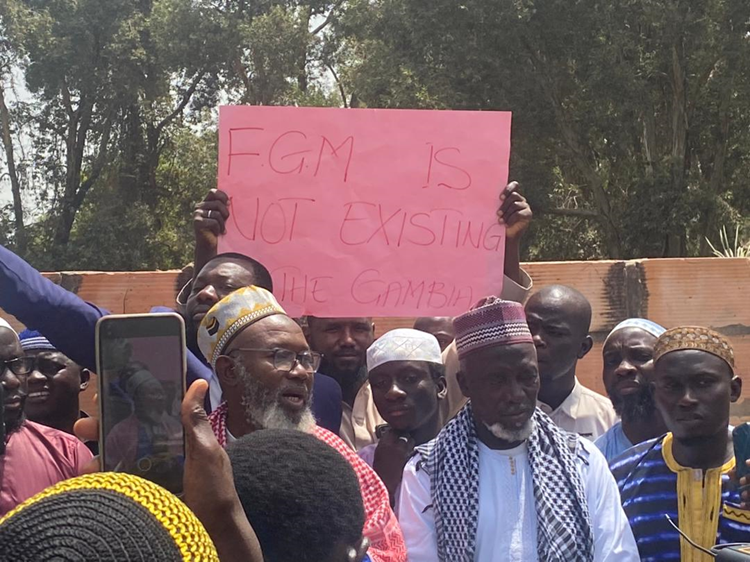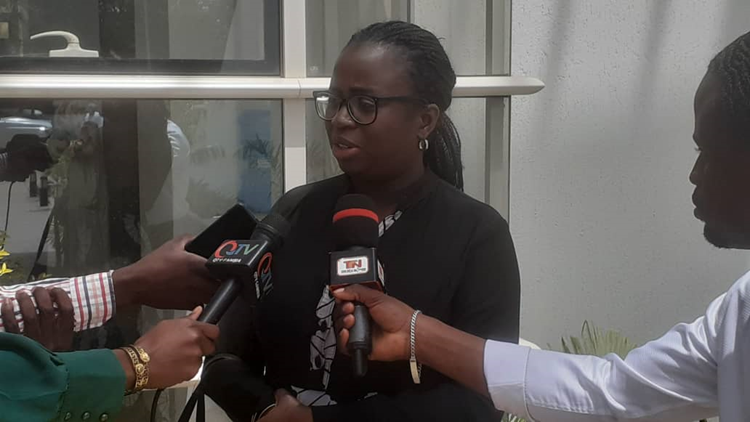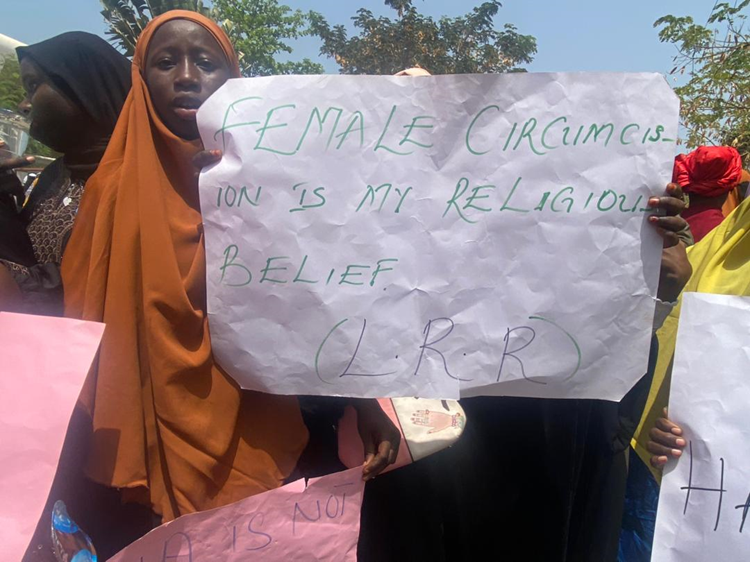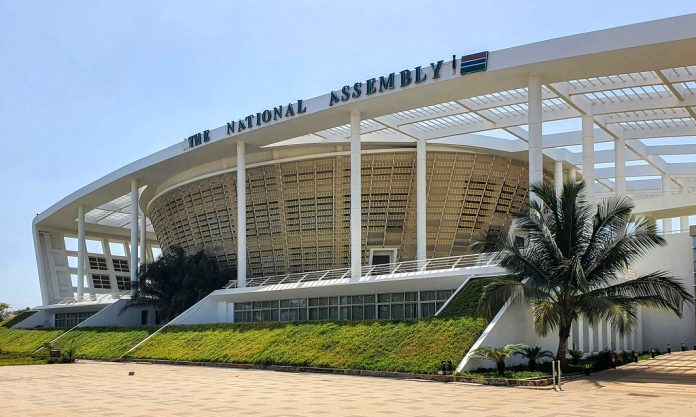By Momodou Jarju

The Gambia’s National Assembly was filled to the brim on Monday as the member for Foni Kansala Hon. Almameh Gibba presented a bill seeking to repeal a law criminalizing the practice of Female Genital Mutilation (FGM).
Read for the first time on Monday, The Women (Amendment) Bill 2024 is aimed at lifting the ban on the practice of FGM in the country.
Stakeholders from Civil Society Organisations and Islamic groups, including religious leaders filled the assembly gallery well before the session started. Dozens of Islamic groups stood outside the assembly gate since all the seats in the assembly gallery were occupied by interest groups. Some of them held placards manifesting support for the pro-FGM bill. One of them read: “Female Circumcision Is My Religious Belief”. Another one read: “FGM Has No Health Implication”.
Reacting to the presentation of the bill, the president of the female lawyers association, Anna Njie, said they are disappointed with the development, noting that for over a decade they have been trying to protect the rights of women and children in the country. She is however hopeful that the bill would not be passed by the house. Ms Njie, who is a barrister and solicitor of the Supreme Court of the Gambia, urged the country to put the issue of FGM away from religion.

“I know there has been a lot of debate that it’s something that has been recommended in some hadiths (teachings and sayings of the Prophet Muhammed) but at the end of the day, I think what is important is, even if this is a culture that was being practiced so many years, whether religion or tradition, what are the medical implications?” she told the press in an interview on the sidelines.
She said there is enough medical evidence to prove the health implications of FGM and that they are not fighting against Islam.
“Islam is a religion of peace; it’s a religion of not doing any harm. So even if this is something that has been practiced over a hundred years ago and now it is detected that it is causing harm, I think people who are advocating for this practice should be the first people to have a stop to it,” she said.
The Civil Litigation specialist hoped that lawmakers would look at the bill critically and not just take it as a fight against Islam.
“There is nowhere it is stated that the prophet practiced this among his family members. And as Muslims we follow what the prophet did. And if the prophet did not do it, why are we doing it? So I think it’s rather disappointing as a country, we have moved forward in terms of protecting the rights of women and girls, but it would be really disappointing if we have to start going back, talking about FGM in The Gambia,” she said.
When asked what they would do if the pro-FGM bill is passed, she said passing of a bill is a right given to the national assembly and they cannot stop them from doing it.
“But there are other rights that are provided in the constitution and if it has to do with the implementation, if there is any legal avenue that we can take to stop the implementation, we will take it,” she said.

“FC Not FGM”
Renowned Islamic cleric Imam Abdoulie Fatty informed the press after the bill was presented on the sidelines that they attended the assembly session in a bid to restore Female Circumcision (FC), not FGM.
When asked to differentiate the two, Fatty said: “Female Genital Mutilation (FGM) is to cut some of the private part of the female genital. Circumcision is related to the clitoris, not the genital part. So this is the difference. We are advised to take a piece of skin, a small piece of skin from the clitoris.”
Imam Fatty disclosed that the late Gambian gynecologist Dr. Jack Faal had emphasised that the practice is not harmful if it is done accordingly—according to Sharia (Islamic law). He explained that blood doesn’t ooze out when the circumcision is done, describing the blood that comes out as “a drip from a cut finger”.
“Female circumcision is allowed in Islam. Some scholars said it is compulsory. Other scholars said it is Sunnah. It is not a force. For many years, no one was forced to practice it,” he added.
The renowned scholar said he is interested in the pro-FGM bill because Prophet Muhammed taught it and it was practiced in his present.
“He doesn’t deny it. He never says it is not allowed. Who are they to say today is haram?” he quizzed. “Yesterday I was in Bakatoh, I asked an old woman, has one girl died through the process? She said no.”
Meanwhile, the second reading of the bill is scheduled for Monday, March 18th, 2024, when members will debate on the merits and principles of the bill.



















